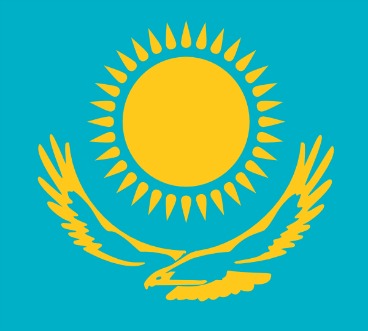Mr. Speaker, in the rugged region of Central Asia, two nations have been dealing with proposed changes to current religion laws. In both Kazakhstan and the Kyrgyz Republic, new religion laws have emerged partially in response to real concerns about terrorism and state security. After the events of September 11, our whole country has a very clear understanding of the threat terrorists pose. Still, our commitment to democracy and religious freedom stands firm. Consequently, I want to highlight and praise both countries for seeking assistance from the OSCE Advisory Panel on Freedom of Religion or Belief. The choice to seek assistance and working to ensure the new legislation is in line with protecting human rights is a mark of wise governance.
Even more, I want to encourage these governments to continue their close co-operation with this body of experts, and to continue to strive to uphold OSCE commitments and international norms for religious freedom. In Kazakhstan, there has been great discussion over a proposed amendment to its 1992 law “On Freedom of Religion and Religious Associations.” The Kazakh Government has been responsive to critiques of the law and removed it from consideration during this past summer. Furthermore, it has listened to the comments made by the OSCE Advisory Panel and modified some of the more troubling sections of the proposed law.
However, concerns still exist in the area of registering Islamic religious groups by the Kazakhstan Moslem Spiritual Administration. It seems likely that with the various Islamic religious groups that are at odds over purely theological issues, registration could be denied for merely being out of favor with the Spiritual Administration. This is problematic; religious organizations should not be denied registration solely on the basis of their religious beliefs. Before the proposed law is reintroduced, I hope Kazakhstan will address these issues, so as to ensure its compliance with all OSCE commitments.
The Kyrgyz Republic is currently considering a proposed law entitled “On Freedom of Conscience and Religious Organizations,” which would replace the 1991 Law on Freedom of Religion and Religious Organizations. In the Kyrgyzstan’s short history of independence, it has consistently joined international human rights covenants. As one of the 55 participating States in the OSCE, the Kyrgyz Republic agreed to abide by the Helsinki Final Act and all subsequent agreements, in which clear language concerning religious freedom exists. This new legislation, made long before the events of September 11, was in response to real fears about terrorism. With religion often being used as a guise to legitimize criminal activities, I recognize the genuine concerns of Kyrgyz authorities about religious organizations existing in their country. However, while the United States has new understanding of the threat of terrorists, I want to encourage the Kyrgyz Republic from overreacting and unnecessarily limiting religious freedom. While the current law on religion is generally in line with its OSCE commitments, it is my concern that if the new law is enacted, Kyrgyzstan will no longer be in compliance with its international obligations. This is especially true concerning the provisions addressing registration of religious groups. In its current form, the draft law’s use of registration requirements appears complex, confusing and convoluted. The two step process of registering religious groups appears to be more an exercise for government involvement rather than a well outlined procedure for recognizing religious communities. The vague requirement of “record-keeping” registration is especially problematic, as it could serve as a major obstacle for successful registration that the government can utilize to block an application. Clear and transparent guidelines would be a superior way to prevent arbitrary tampering by government officials in the process of registration.
In closing, I hope both the Kazakh and Kyrgyz Governments will be mindful of 1989 Vienna Concluding Document, (para 16.3), which states that governments are obligated to “grant upon their request to communities of believers, practicing or prepared to practice their faith within the constitutional framework of their states, recognition of the status provided for them in their respective countries.”




